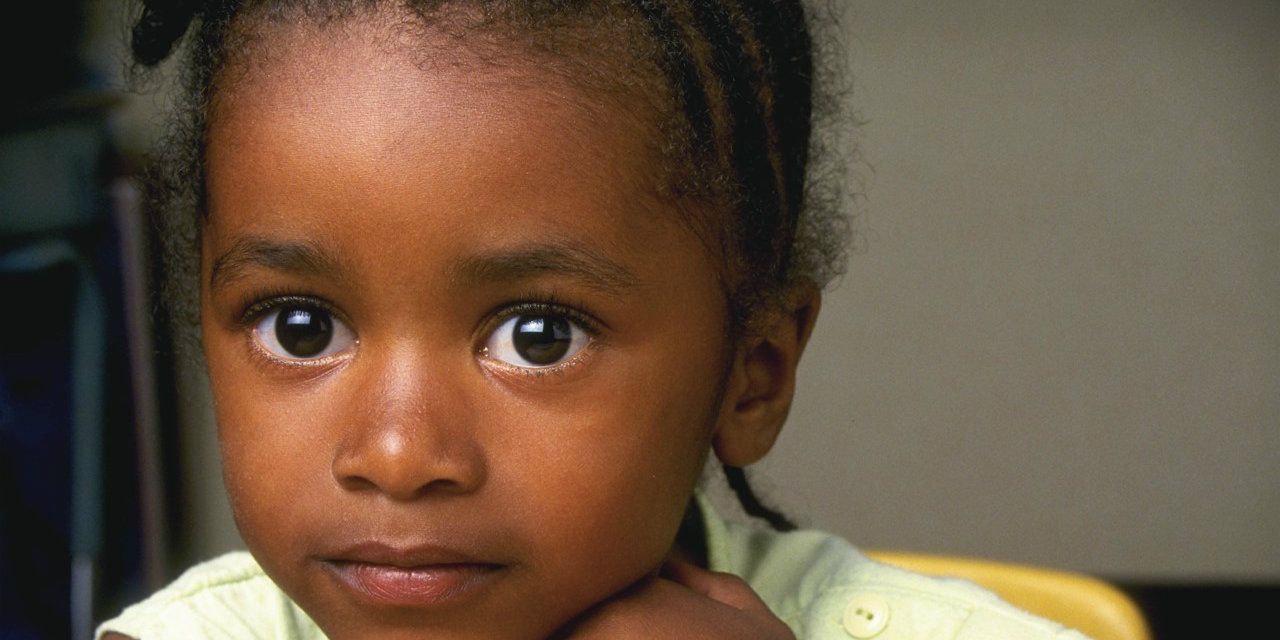"Brown Daughters Who are Not Our Own" Are No Less Our Own

Liz A.’s poetic piece, “For Brown Daughters Who Are Not Our Own” comes from the most heartfelt of places with nothing but loving intent, but it is misguided in its approach.
The world is no doubt a hostile place for those born into black and brown bodies; no one can truthfully argue otherwise. Racism is the sickening and very real by-product of the social construct of race, and it is absolutely our duty as adults to warn the children who will inevitably face this ugly reality. We must equip them with information and give them a safe space to dialogue about their experiences so that they may flourish in spite of the cruelty.
We must love them and find ways to ensure they know this love enough to keep it ever-present at the forefront of their minds. We must teach them to love themselves as they are and instruct them on ways to honor the beautiful by-product of race: Culture. The elements of her piece that did not sit well with me can be summed up in the line: “I think of you as an embodied symbolism, a message to me, to other brown women.”
Children are people, not embodied symbols or messages. They do not exist to assuage or confirm our cultural hurts and historical traumas. They exist to carve out their own experiences and assign their own meanings to their lives. Their lives are our gifts to them. They are not our harvest.
Children are growing people who need care from loving adults who can be empathetic to their specific needs. With so many adults of every race or medley of races severely lacking in their capacity to care for our smallest, most vulnerable, citizens (let alone, themselves!), I believe it is best that we allow children to get that love and care from whoever will freely offer it to them.
What we can truly focus our energies on is arming ALL adults who are interested in raising these children with information about the best practices for doing so. Adults who raise children are not just parents, they also community leaders, teachers, and potential mentors. Children are reared by all adults and influences they encounter regularly. Of course, children of any historically oppressed group need to see people who look like them living full and happy lives in their chosen fields. But, in cases where these children are being raised by a parent or parents of divergent backgrounds, it is then the parent’s duty to find appropriate mentors.
But that’s just another task of parenting-- finding ways to fill in the gaps. To truly make the world a more hospitable place for black and brown children, we must continue to push forward with anti-racist work. We can continue fighting towards abolishing abusive legislative practices of which the list is exhausting: the discriminatory “stop and frisk” is only one of many I can think of. Let us continue to increase honest and constructive dialogue about race-- our efforts in doing so are already (frustratingly) slowly but surely shifting culture. Let’s continue to set up and support resources that will afford opportunity to children of black diasporic heritage in every domain they may choose.
We can heal our wounds without being so restrictive.
At the root of making such a claim that black women are the only ones who can effectively raise black children is a harmful essentialism—it’s an assumption that all black women have the same experiences and upbringings. The idea that there is a real or authentic blackness that is intrinsic and can be violated by outside influences. While there are many shared cultural ties, struggles, and accomplishments that bind us and should be revered, we are not a monolith.
We are a people amalgamated-- fused and formed from a variety of different locales, economic situations, family structures...the list of factors is endless. There are so many shades and expressions of global diasporic blackness that to attempt to live as a monolith would be a disservice. I want every imagination of blackness to be fair game. Black children with a white parent or parents can absolutely grow to have a strong sense of black identity and a complex understanding of their history if we are interested in helping to facilitate that.
In an idyllic world, we would be able to engage in true cultural diffusion without any kind of supremacy. We are eons away from that world, of course, but I do not think that discounting the experiences of children who are living a different kind of blackness is a productive stop on the path to achieving it. I think that the oftentimes stringent restrictions on what black identity is can be so alienating, and we can miss out on some truly novel contributions to social justice because of it. There is so much expanse of earth to experience, that to dwell on an “essence” which has never existed would result only in wasted time.
Related:
Black Women Build Families Through Adoption
Deconstructing the Single Mother Stigma
The Single Mom's Guide To Raising Strong Kids'
Michelle Marie Charles is a New Media artist and writer based in New York. Her work examines gender, race, sexuality, and identity construction.

No comments: